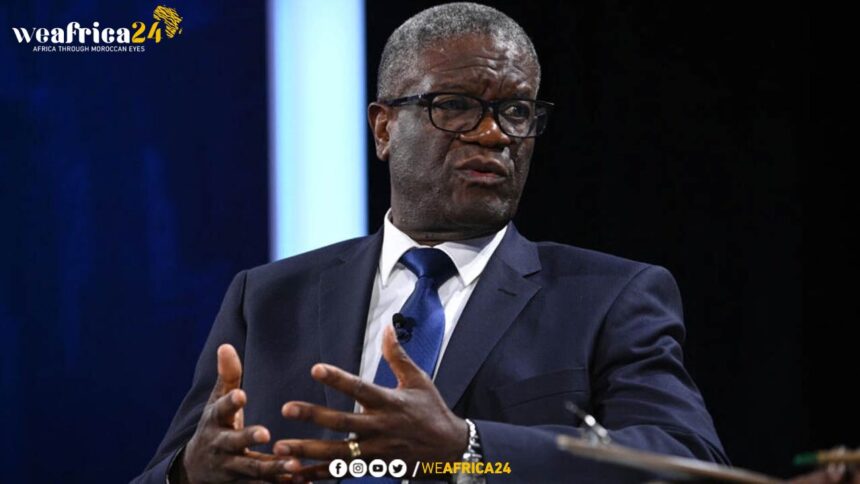Dr. Denis Mukwege, the Congolese gynecologist and 2018 Nobel Peace Prize laureate, is our special guest today. Last week, he attended a congress in Angers, western France, focusing on sexual violence against children in conflict zones. The conference highlighted a distressing trend: severe violations against children, including sexual violence, are on the rise in war-torn areas.
Sexual Violence as a Weapon of War
Rape is now being used as a weapon of war in most modern conflicts, such as in the Democratic Republic of Congo, Sudan, and the Anglophone regions of Cameroon. Why is it so prevalent in these war zones today?
Denis Mukwege: Unfortunately, I believe rape as a weapon of war is used in every conflict we see today. It is an effective weapon that requires very little investment but causes immense destruction to societies and individuals. When children are targeted by combatants, it is not by chance. Traumatized children develop psychological defense mechanisms, leading to dissociation. These children then become potential recruits for armed groups—boys are drawn into these factions, while girls often end up in prostitution, perpetuating societal harm. It appears to be a deliberate strategy to cause long-term destruction.
Increasing Violence in the DRC
In your home country, the Democratic Republic of Congo, UNICEF reported an increase in sexual violence against children and a record number of severe violations last year. What explains this worsening situation?
Denis Mukwege:The report from Médecins Sans Frontières stated that in 2023 alone, there were 90,000 victims of sexual violence in North Kivu province. This conflict is neglected and forgotten. With 7 million internally displaced people living in inhumane conditions, children who have lost their parents sometimes resort to prostitution in camps for food. This is a shameful reality for all of us.
International Law and Accountability
Do you think international law adequately addresses the use of rape as a weapon of war today?
Denis Mukwege: There have been significant advancements, particularly with good laws in the DRC. However, the main issue is that states no longer respect international humanitarian law. For 30 years, the Congo’s neighbor has continuously violated these laws in the DRC, seemingly to exploit the country’s natural resources for the benefit of the international community, which remains unresponsive.
Breaking the Cycle of Violence
What needs to be done to break this cycle of sexual violence? Is it primarily the responsibility of states to uphold their commitments, and how can they be held accountable?
Denis Mukwege: The conflict in the DRC is an economic war to control its natural resources. If high-tech and new technology companies using these minerals demand peace, it can be achieved. However, as long as they participate in the exploitation, the neighboring country will continue to fabricate pretexts for war to exploit these minerals.
Political Engagement in the DRC
Lastly, regarding Congolese politics, you were a candidate in the last presidential election in December, garnering less than 1% of the vote. Does this signify the end of your political engagement?
Denis Mukwege: I have stated before that there was no real election in Congo—it was a sham. For me, it was a matter of responsibility, and I am proud to have done it. The outcome reflects on those who organized this electoral charade.
Dr. Denis Mukwege’s insights highlight the devastating impact of sexual violence in conflict zones and the urgent need for concerted international efforts to address these atrocities and uphold human rights.







